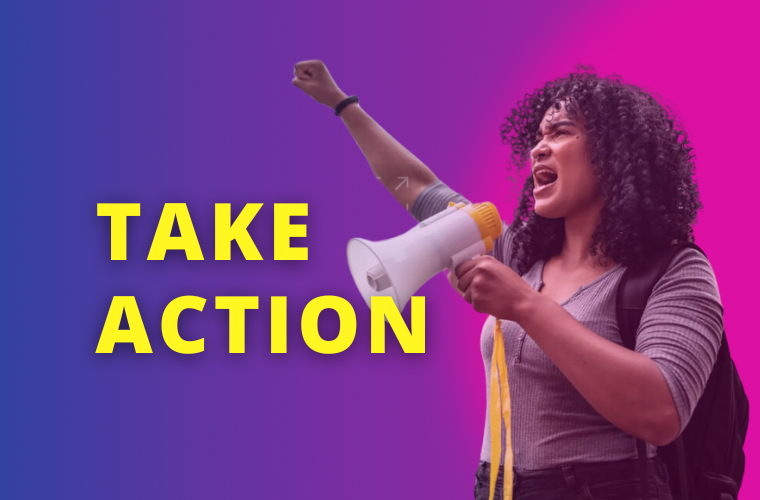

3 Ways California’s Pay Transparency Bill Will Help Close the Wage Gap for Women & People of Color
Last week, state Senator Monique Limón, D-Santa Barbara, introduced California Senate Bill 1162, the Pay Transparency for Pay Equity Act. Co-sponsored by yours truly at Equal Rights Advocates, the California Employment Lawyers Association (CELA), and TechEquity Collaborative, and the National Employment Law Project. SB 1162 is a priority bill on the 2022 Stronger California Women’s Economic Security Agenda chaired by Equal Rights Advocates.
The Pay Transparency for Pay Equity Act builds upon SB 973, a 2020 law spearheaded by ERA and CELA, which requires employers of 100 or more employees to submit pay data reports to the California Department of Fair Employment and Housing, with their aggregate pay data broken down by sex, race, and ethnicity in specified job categories.
Research shows that when workers have more information about the potential terms of employment, specifically potential salary ranges, that helps them to negotiate.— Jessica Ramey Stender, Policy Director & Deputy Legal Director
This type of pay data is key to closing the gender and racial wage gap that persists in most industries. It’s also necessary information to properly enforce existing equal pay laws. After all, we can’t fix what we can’t see.
While SB 973 was a crucial step in the right direction, it does not require pay data reporting for temporary, contract, or contingent workers hired through third-party staffing agencies, nor does it make the pay data public. These factors are also necessary if we want to end gender and race pay discrimination.
That is why we’re co-sponsoring SB 1162: the next necessary step on our path to equal pay is corporate transparency and accountability. The bill will:
1. Require companies to report pay information for contract workers.
Contract-style positions have become increasingly popular in a variety of fields. Contract workers are typically paid less and given fewer benefits, making them an increasingly attractive option for employers who prioritize the bottom line over treating employees right and adhering to employment laws.
TechEquity Collaborative, a fellow bill co-sponsor, recently issued a report that found contractor jobs are more likely to be held by underrepresented groups like women and people of color, further proving the need for SB 1162, given the pandemic’s disproportionate impact on these groups.
2. Require company pay data to be public.
SB 1162 will build upon SB 973 and take it a step further– it will require companies with 100 or more contract workers to report pay data related to their contract workforce, which will increase oversight to ensure these workers are being paid fairly. SB1162 will help hold companies accountable to closing the pay gap by putting it all on the table.
Equal pay advocates have long said that pay transparency is key to closing gender and racial pay gaps.
CEO and co-founder of TechEquity Collaborative, Catherine Bracy said, “We need clear, tangible policy that will close the gap between contract and directly employed workers and tackle the racial and gender wealth disparities inherent to this work.”
Limón said there is resistance “almost every step of the way” in regard to pay equity laws. She ardently maintains this bill isn’t necessarily about paying employees a certain amount of money– it’s about paying a fair wage for the same work, regardless of an employee’s classification. And since contractor positions are held by a majority of women, people of color, or LGBTQ+ people, it’s all the more important a bill like SB 1162 gets passed.
3. Require internal transparency and public listing of salary ranges on job postings.
The bill would also require employers to publish on job listings the applicable salary or hourly wage range. As of right now, employers in California don’t have to disclose that information unless a candidate asks during the interview process.
“Research shows that when workers have more information about the potential terms of employment, specifically potential salary ranges, that helps them to negotiate,” said Jessica Ramey Stender, Policy Director and Deputy Legal Director at Equal Rights Advocates, in a recent San Francisco Chronicle article. SB 1162 will therefore empower women and other underrepresented people to negotiate higher pay and help narrow unfair wage gaps.
Finally, SB 1162 will allow current employees to have access to job promotion opportunities, by requiring employers to make promotion opportunities known to current employees, including the salary range for the position. “Hopefully this will prevent discrimination in deciding who gets to apply for a position,” Stender said.
Support this bill at the link below!
Stay Connected & Take Action
- Get the Latest News & Information Sign up for Email Updates
- Sign Up for Action Alerts Join the Action Team
- Follow Us


